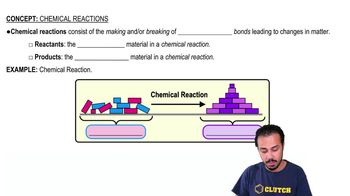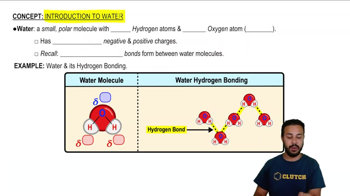Here are the essential concepts you must grasp in order to answer the question correctly.
Condensation Reaction
A condensation reaction, also known as a dehydration synthesis, is a chemical process where two molecules combine to form a larger molecule, releasing a small molecule, typically water, as a byproduct. This reaction is fundamental in the formation of polymers from monomers, such as in the synthesis of proteins from amino acids or carbohydrates from simple sugars.
Recommended video:
Covalent Bonding
Covalent bonding involves the sharing of electron pairs between atoms, which allows for the formation of stable molecules. In the context of condensation reactions, covalent bonds are formed between monomers, resulting in the creation of larger macromolecules. This type of bonding is crucial for the structural integrity and function of biological macromolecules.
Recommended video:
Water as a Byproduct
In condensation reactions, water is produced as a byproduct when two monomers are joined together. This occurs because a hydroxyl group (–OH) from one monomer and a hydrogen atom (–H) from another monomer combine to form water (H2O). Understanding the role of water in these reactions is essential for grasping how biological macromolecules are synthesized and how they function in living organisms.
Recommended video:
 Verified step by step guidance
Verified step by step guidance Verified video answer for a similar problem:
Verified video answer for a similar problem:

